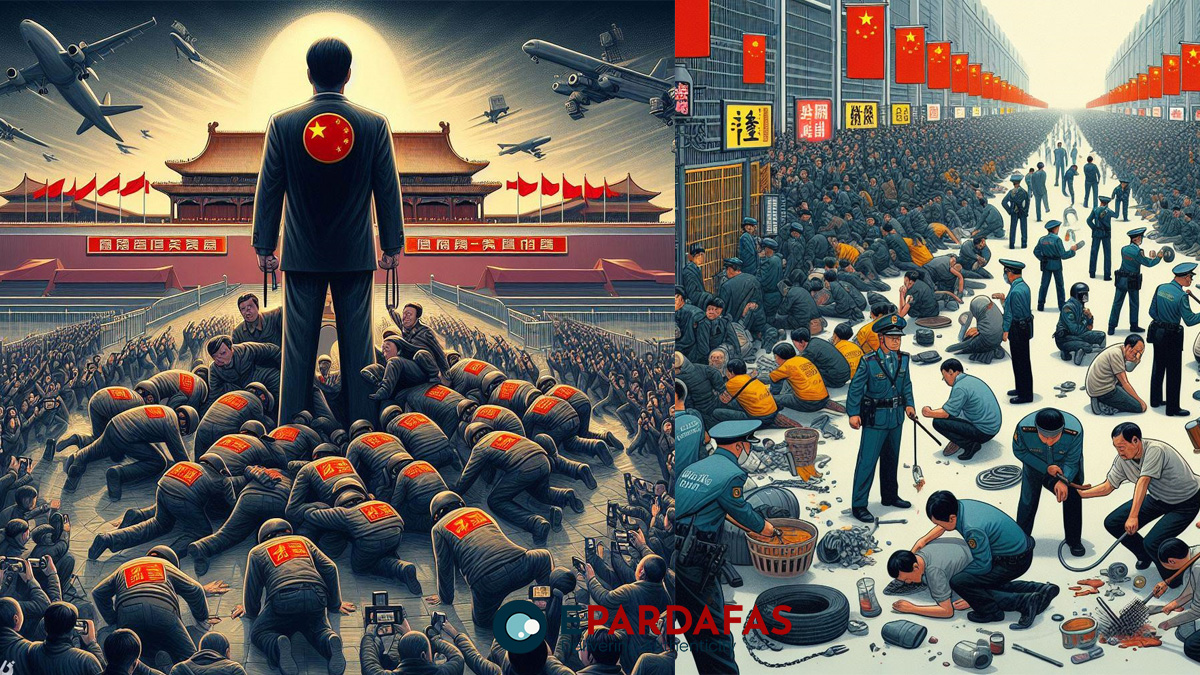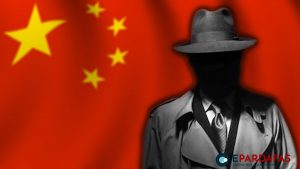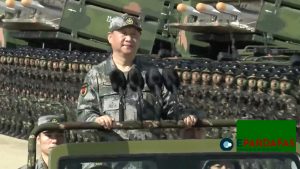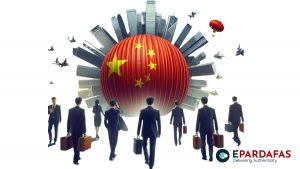
China Intensifies Crackdown on Dissidents: Rights Groups Allege Systematic ‘Collective Punishment’
Los Angeles, CA — In a disturbing trend marking the 75th anniversary of the U.N. Universal Declaration of Human Rights, Chinese authorities are facing increasing criticism for their harsh crackdown on dissent, both within the country and beyond. A new report published on International Human Rights Day by the Rome-based rights group Safeguard Defenders alleges that the Chinese government has escalated its use of “collective punishment” against the families of human rights advocates.
The report, based on interviews with over a dozen rights activists and compiled media reports, reveals at least 50 cases from 2015 to 2022. The instances include the detention, home eviction, harassment, or violent assault of family members of activists. Among those affected is Lu Lina, whose husband, Liu Sifang, a musician and former teacher, fled China in 2019 to escape a police crackdown on dissidents. The family, after facing numerous obstacles imposed by border police, resorted to filing for divorce in China to circumvent the exit ban, ultimately reuniting and settling in Los Angeles last year.
Rights groups argue that the Chinese government, under President Xi Jinping, has become increasingly impervious to international pressure. Sophie Richardson, a China observer and former China director at Human Rights Watch, stated, “Xi’s leadership sought to obliterate civil society and to silence dissent, not just inside the country but globally, to ensure that anybody who criticizes him, and the regime has to think twice.”

The report comes in the wake of a fresh round of talks between European Union leaders and China, where deep concerns about China’s rights situation were expressed. The EU-China human rights dialogue, while welcomed by both sides, is criticized for falling short of yielding real outcomes for dissidents.
Wang Lutong, head of European affairs at the Chinese Foreign Ministry, affirmed Beijing’s willingness to continue the dialogue but warned against using human rights as a tool to criticize China. Foreign Minister Wang Yi reiterated China’s longstanding defense against international criticism, stating that China opposes attempts to impose values on others.
Rights groups point to cases like that of Yu Wensheng, a human rights lawyer, and his wife Xu Yan, who were detained on their way to the EU office in Beijing. Vague charges of subversion of state power and “picking quarrels and stirring up troubles” are common tactics against rights activists in China.
The situation highlights a broader concern that the international community, particularly Western governments, is failing to exert sufficient pressure on China. Critics argue that the EU-China rights dialogue serves as a symbolic gesture with little tangible impact. As the Chinese government continues its crackdown on dissent, human rights advocates fear that the situation may worsen, posing a challenge to the principles laid out in the Universal Declaration of Human Rights.
















Comments